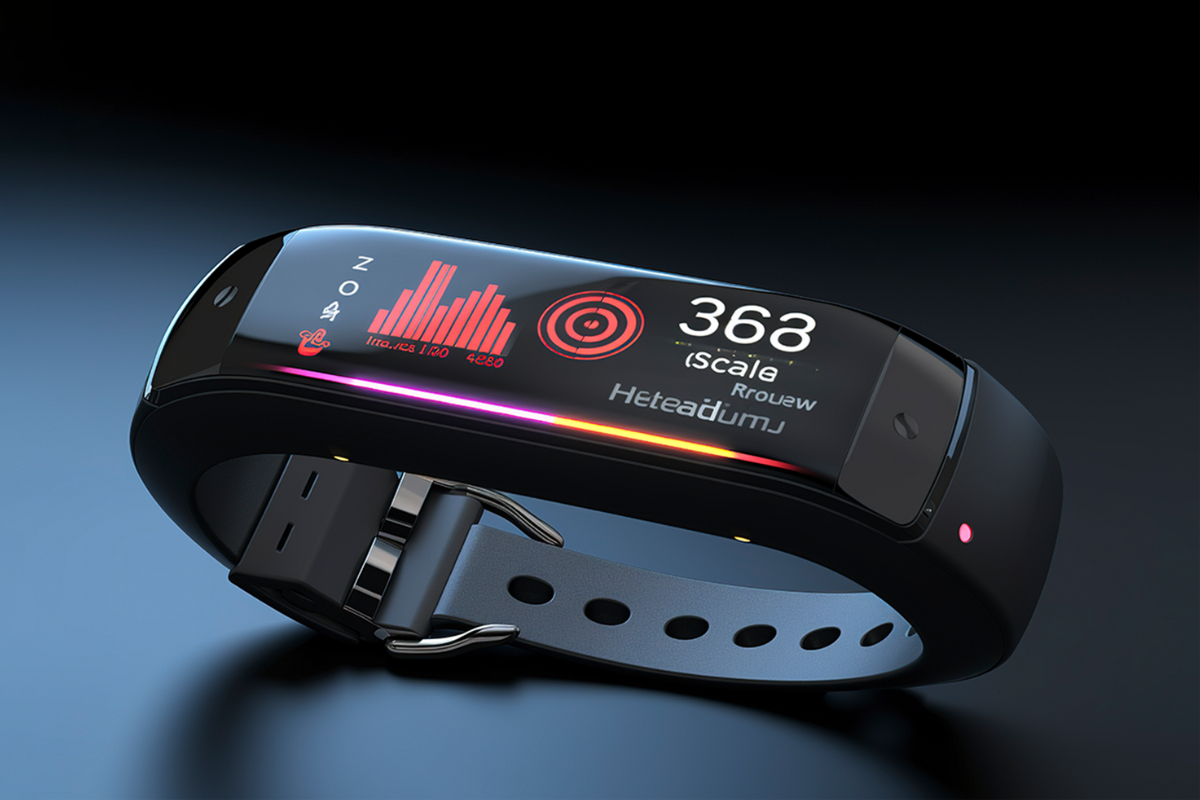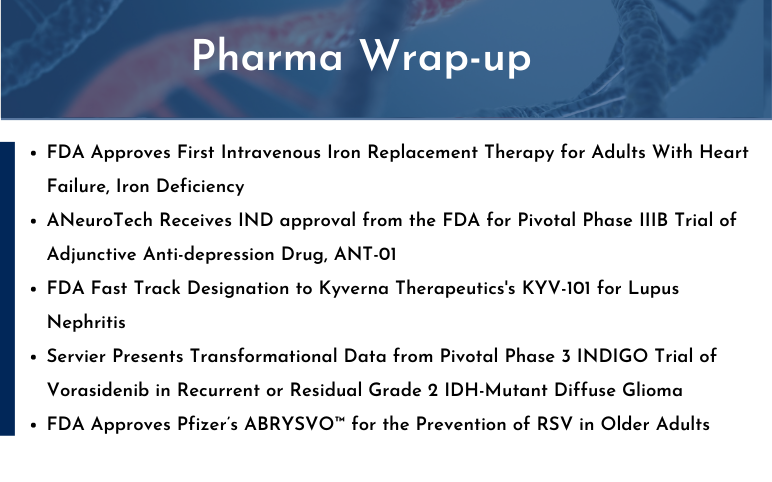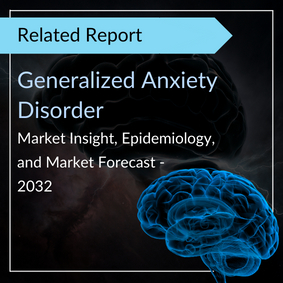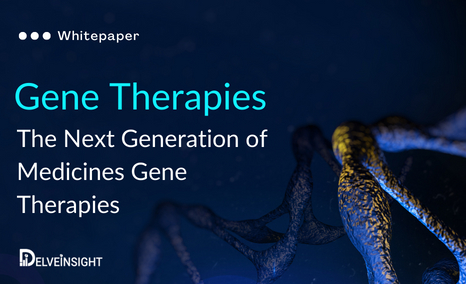In the current scenario, with an unabating urge to maintain good mental health, individuals seem quite aware of sanity and are much more likely to talk about it openly. More people are accessing care, which in turn, accounts for a notable rise in the number of cases. However, what is really steering this increase seems tricky to tease out. Ordinary anxiety is provisional but people who feel anxious and worried most of the time are said to have Generalized Anxiety. This is a primary factor that helps in generalized anxiety disorder diagnosis and differentiation from other depressions and related disorders. Our prior understanding used neurotransmitters or chemical messengers as the mainstay approach for generalized anxiety disorders treatment. There are a plethora of drugs working around this principle, such as selective serotonin reuptake inhibitors which came in the 90s. These were the latest addition and were deemed to be safer. Among the pharmacological generalized anxiety disorder treatment therapies, SSRIs (Paroxetine, Escitalopram, Sertraline, Fluoxetine, and others) are commonly used as the first line of therapy for generalized anxiety disorders treatment. They can relieve anxiety symptoms and help reduce the depression symptoms that often accompany anxiety disorders. Side effects of SSRIs include nausea, insomnia, and sexual dysfunction. If treatment with SSRIs does not work, other classes of medications, such as SNRIs, which include duloxetine and venlafaxine, and others are recommended. They have a similar effect to SSRIs.
Along with these, psychotherapy and calming drugs like benzodiazepine form the short-term treatment while anti-anxiety drugs like buspirone are used for long-term care. Pregabalin is also FDA approved for generalized anxiety disorders treatment; although this medication is effective, it often causes dizziness and tiredness. However, research suggests that only about 40% to 60% of individuals taking an anti-depressant show improvement. Further, about 50% of these people have side effects occurring in the initial few weeks, thus, making it non-compliant in long run. Despite the availability of these therapies, there is a lack of efficient therapeutic agents as the available therapies have safety issues over older medication classes, though they may have a slow onset of action, and patients may experience troublesome side effects. Therefore, there is a high unmet need for developing safe and effective therapies.
Key generalized anxiety disorder companies with their lead products include MindMed, VistaGen Therapeutics, Actavis, Takeda Pharmaceuticals, Bionomics, ChemRar Research and Development Institute, Tilray, PSY Therapeutics, VistaGen Therapeutics, SAGE Therapeutics, Bionomics, Pear Therapeutics, Lundbeck, OWP Pharmaceuticals, Fabre-Kramer Pharmaceuticals, and others are working on developing potential generalized anxiety disorder pipeline drugs in the upcoming years.

Further, continuous pathophysiological research led to the discovery of newer hypotheses that suggest dysfunction in neural circuits (which includes hyper and hypo-activated regions in parts of the brain like the thalamus, amygdala, hippocampus, and striatum) responsible for anxiety. Enter Psychedelics—psychoactive substances (popularly known as Party Drugs or club drugs) that act on neural circuits and not only modulate their network but also increase neural connections. The most common types of these party drugs include hallucinogens like Lysergic acid diethylamides (LSD) and psilocybin. According to the report by Newport Institute, around 9% of college students used hallucinogens in 2020 and about 1 in 10 young adults who were not attending college used hallucinogens which is the highest level in two decades. Thus, these drugs are deemed illegal as they are often being used recreationally (drug abuse) during college parties, nightclubs, concerts, etc. However, unlike antidepressants, just a few doses of these psychoactive drugs effectively manage anxiety.
LSDs have been studied since the 1950s and were also used in the treatment of anxiety, addiction, depression, and others. Psilocybin has a history of success in this path. Yet, due to unstandardized and vague protocols followed for studying, these drugs remained one of the most stigmatized and legally restricted agents. Nevertheless, thanks to the clear regulative pathway, there has been a resurgence of interest towards the medicinal use of such lysergic acid diethylamides. One such proprietary drug, MindMed’s MM-120, is being assessed for generalized anxiety disorder. Rest, the generalized anxiety disorder pipeline remains quiescent.
MM-120 can cause intensified thoughts, emotions, and sensory perception and has shown positive results in the early phase of development. Recently, the drug received clearance from the US FDA for its IND application, which allows the company to proceed with MM-120’s Phase IIb dose-optimization trial for generalized anxiety disorder treatment. Another drug in the GAD pipeline is PH49B which is currently under investigation by VistaGen’s Therapeutics, it is an innovative synthetic investigational neurosteroid developed from proprietary compounds called pherines. With its novel mechanism of action, PH94B is an odorless nasal spray administered at microgram-level doses to achieve rapid-onset anti-anxiety, or anxiolytic, effects. The drug is currently in Phase II for generalized anxiety disorder treatment.
As per Delveinsight’s analysts, the Generalized Anxiety Disorder market size in the seven major markets was approximately USD 1,500 million in 2021. With the approval of such psychoactive drugs, the market of generalized anxiety is expected to cross USD 3 Billion by 2032. In addition, the epidemiology analysis suggests that the total 12-month Generalized Anxiety Disorder prevalent patient population in the 7MM countries was close to 16 million cases in 2021.
DelveInsight’s analysis suggests that the United States accounts for the highest Generalized Anxiety Disorder market size compared to the EU5 (the United Kingdom, Germany, Italy, France, and Spain) and Japan in the 7MM countries.
Read More About the Generalized Anxiety Disorder Market Through our Infographics – Generalized Anxiety Disorder Treatment Market
Mounting evidence in support of these hallucinogenic drugs along with quick efforts by companies in sorting, developing, and deploying psychedelic-inspired medicines for mental illness holds the potential to treat a large crowd and capture a substantial Generalized Anxiety Disorder market by successfully treating generalized anxiety disorder. However, this will be possible only if certain weak points are perfected. Unlike other forms, generalized anxiety is a highly placebo responsive condition. Therefore, to ensure success, drug developers should implement a sequential parallel comparison design to enhance signal detection as being implemented for depressions. Moreover, studies should be conducted that scrutinize the temporal relationship between the onset and duration of anxiety symptoms relative to the depressive disorders diagnosis and its impact on treatment responsively. By implementing such ideas, the companies can equipoise risk-reward ratio in the trials and thus, will move closer to the treatment discovery goals in this landscape of the generalized anxious brains.

FAQs
Generalized Anxiety Disorder usually involves a persistent feeling of anxiety or dread that interferes with how you live your life. It is not the same as occasionally worrying about things or experiencing anxiety due to stressful life events. People living with Generalized Anxiety Disorder experience frequent anxiety for months, if not years. Generalized Anxiety Disorder develops slowly.
Some of the Generalized Anxiety Disorder symptoms include restlessness or feeling keyed up or on edge, being easily fatigued, difficulty concentrating or mind going blank, irritability, muscle tension. and sleep disturbances (difficulty falling or staying asleep, or restless, unsatisfying sleep).
Leading pharma companies such as MindMed, VistaGen Therapeutics, Actavis, Takeda Pharmaceuticals, Bionomics, ChemRar Research and Development Institute, Tilray, PSY Therapeutics, VistaGen Therapeutics, SAGE Therapeutics, Bionomics, Pear Therapeutics, Lundbeck, OWP Pharmaceuticals, Fabre-Kramer Pharmaceuticals and others are working on developing a novel approach for Generalized Anxiety Disorder treatment.










-Agonist.png)


